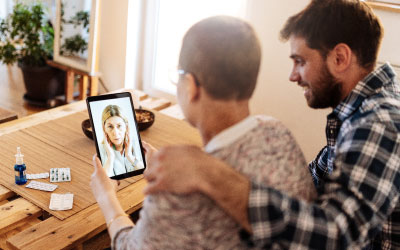Find a Clinical Trial
Many people find out about clinical trials from their doctors. Your doctor or cancer center may tell you about certain trials that they might be conducting.
Your doctor may not be aware of all clinical trials, as there are currently hundreds of trials in the U.S. alone. But there are also ways to find a clinical trial yourself.
How to find clinical trials
The easiest way of finding a clinical trial is to ask your oncologist (cancer doctor). Your doctor might be aware of current trials for leukemia near where you live or have connections with the researchers.
Your oncologist can also look at clinical trial criteria and make sure that you are eligible for the study. You will need your cancer doctor’s referral to participate in a clinical trial.
Other options to find a clinical trial include the following:
- Online search tools
- Assistance from individuals working for organizations that can help you identify appropriate clinical trials
Online search tools or assistance
Many online search tools can help you find clinical trials listed in a clinical trial database. You can search for trials researching treatments for your specific type of leukemia. You can also search for trials close to your home.
Some organizations provide one-on-one assistance to find clinical trials that you might join.
Search here first:
- The Leukemia Research Foundation’s easy-to-use online search tool focuses solely on leukemia clinical trials. Use this tool first to save time and effort looking for a trial to match your needs. The search tool uses your answers to specific questions to consider relevant details about your health situation.
Other search tools to consider:
- The National Institutes of Health (NIH) has created a large clinical trial database called ClinicalTrials.gov. Every clinical trial registered with the NIH and FDA is listed here. These trials may also be privately funded. There are search options for clinical trials outside the U.S. as well.
- The National Cancer Institute (NCI) is a division within the NIH that specifically funds many cancer-related clinical trials. The NCI has an online search tool for finding NCI-Supported Clinical Trials nearest you. It searches for trials according to cancer type and age, which are often common eligibility requirements for these studies.
- Be The Match allows you to find your own clinical trial or provides one-on-one support to help you search if you need it.
- The Center for Information and Study on Clinical Research Participation offers free clinical trial search help on its website or by calling 1.877.633.4376.
- EmergingMed Clinical Trial Navigation Service provides a free online search tool or help from a clinical trial navigator through its website.
Next steps
Once you have found a clinical trial that you think you are eligible for, you should learn as much about this trial as possible before deciding to join. You might need to choose among several clinical trial options.
Here is a list of next steps to take:
- Make a list of clinical trial questions to ask your doctor or the clinical trial team.
- Talk with your doctor to see if the trial is a good idea. Your doctor knows your medical history and current situation best.
- Talk with someone involved in the clinical trial (a research coordinator or the principal investigator) to learn more about the study.
- Talk to your family and friends about your possible clinical trial participation. They may have support-related questions for your doctor or clinical trial team.
- Contact the clinical trial team to inform them of your decision if you decide to join the trial. They will begin enrolling you in the trial and schedule an informed consent meeting to explain your rights as a participant.



